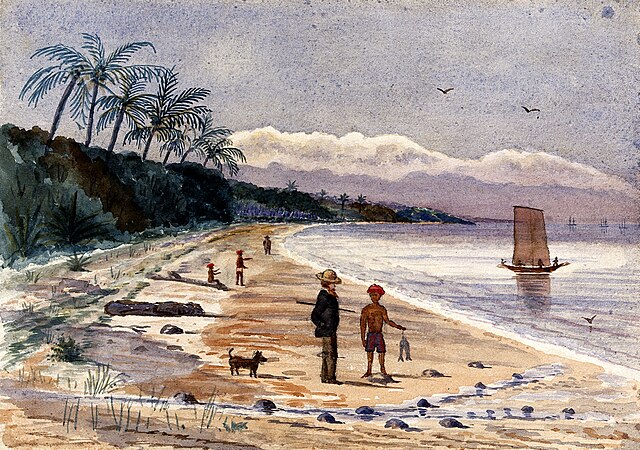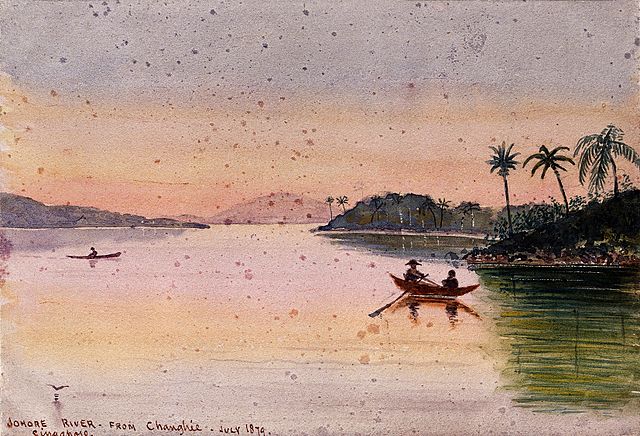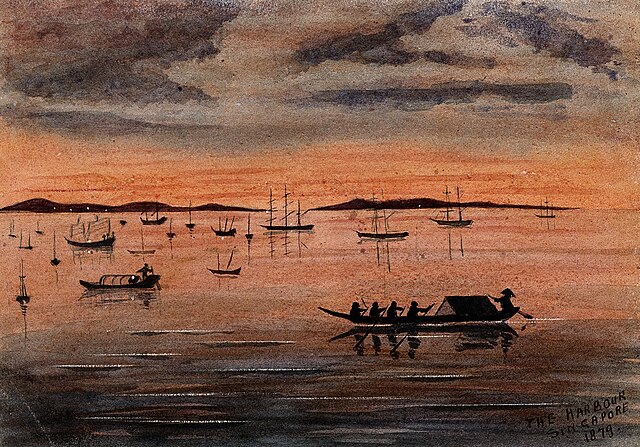
On March 21, The Thammasat Institute of Area Studies (TIARA) and ASEAN Association of Thailand are presenting a panel discussion on the ASEAN Position in the New Security Landscape. The seminar will be held from 9am to noon at the Prakorb Hutasingh Meeting Room, third floor, Anekprasong 1 Building, Thammasat University, Tha Prachan campus. Preregistrations for attendance are welcome at this link.
Panelists will include Professor Greg Raymond of Australian National University (ANU). Dr. Raymond is a research fellow in the Strategic and Defence Studies Centre, ANU Canberra. He is currently researching Thailand, the United States, and China. With experience in strategic and defence international policy areas, Dr. Raymond lists his research interests on is university homepage as follows:
- Southeast Asian security with a focus on Thailand and Indonesia, including Southeast Asia’s relations with the Great Powers.
- Strategic culture, regional militaries and institutional and historically-informed approaches to understanding the armed forces and strategic outlooks of countries in our region.
- Australian defence and foreign policy, including on disputes such as the South China Sea.
- Use of force and the rules-based global order.
His other projects include a book to be published by Routledge on how Thailand’s historical memory shapes relations with the United States and China. The book will draw on analysis of surveys conducted over three years with 1800 Thai military officers under the Minerva Initiative. The Minerva Initiative is a research program sponsored by the U.S. Department of Defense (DoD) that provides grants to sustain university-based, social science studies on areas of strategic importance to U.S. national security policy. The program looks to tap into the community of area specialists and other university researchers, particularly those who work on Islam, Iraq, China, and related areas.

Dr. Raymond’s book project is further described as follows:
In analyzing memory we will employ an approach of identifying “sites of memory” that in totality go to constituting national identity. Identifying “Sites of memory” was an approach employed by French historian Pierre Nora in his work on the development of French national identity. “Sites of memory” can comprise material or non-material entities; key incidents, places, images, and figures that persist and become a “symbolic element of the memorial heritage of any community”. In this book we will treat the Thai-US alliance as a “site of memory”, evaluating its constituent elements, primarily over the course of the twentieth century, and particularly the Cold War and post-Cold War periods. We will take a similar approach to the construction of the memory of China.
The Thammasat University Library owns the books by the French historian Pierre Nora referred to above, published in English as Realms of Memory. They are shelved in the Pridi Banomyong Library, Tha Prachan campus.
Media comments
Last October, Dr. Raymond spoke to The Sydney Morning Herald about the Our Eyes initiative (OEI) by Thailand, Indonesia, Malaysia, the Philippines, Singapore, and Brunei. The OEI, whose name echoes the Five Eyes intelligence network of the United States and five of its Western allies, was proposed by Indonesia. The plan is to benefit from an information-sharing platform for member countries to exchange information about terrorism, radicalism, and violent extremism. Dr. Raymond approved of Australia joining OEI, stating:
Australia needs to continue to keep pushing for higher degrees of cooperation between the ASEAN countries than they have been used to… Australia has the Australian Federal Police working closely with its Indonesian counterparts already. There has long been sharing of sensitive information on criminal and potential terror suspects.
Last March, Dr. Raymond coauthored an article that appeared in the East Asia Forum Quarterly, ‘Why ASEAN matters.’ The subject was
Tenets of Thailand’s ASEAN engagement:
ASEAN member states have different perspectives on the significance of the grouping. As one of the founder member states, the second largest economy and a leading state within ASEAN, Thailand’s view is important. A survey of 1800 former and current Thai officials conducted from 2014–17 on Thailand’s relationship with great powers demonstrates that despite Bangkok’s reputation for hard realism in its foreign policy, ASEAN surprisingly seems to matter a great deal to Thailand in terms of regional security and prosperity…
Security is a more complicated question. While the creation of ASEAN was never ostensibly about any form of mutual security pact, its formation always had a security dimension that was internal to ASEAN rather than external. After the US withdrawal from Vietnam and the consolidation of communist regimes in mainland Southeast Asia, Thailand decided to prioritise relations with its neighbours. For Thai policymakers, ASEAN has remained integral to Thailand’s security and is perceived as almost an article of faith.
Yet this faith is not blind and Thai respondents frequently pointed out ASEAN’s shortcomings. There is no expectation that ASEAN will present a unified front to the world in political or foreign policy terms. A senior Thai prime ministerial adviser argued that ‘if ASEAN was a nation it would be very mixed. Brunei is a monarchy, others are communist. Some are democracies, some are not. Some are Buddhist, while others are largely Muslim or Christian’. Similarly, a serving Thai military officer declared that making progress on security, humanitarian assistance or even joint task forces would take time because of the differences in politics, economies and levels of prosperity.
Balancing the great powers is a key issue for Thailand. ASEAN now organises a wide range of meetings to help member states’ relations with external powers. One officer declared: ‘In ASEAN I speak with many people. They don’t want the superpowers to come in and dominate. That is the concept. There are various mechanisms to balance the powers’.

In 2017, Dr. Raymond wrote another study for Contemporary Southeast Asia, observing that so far, army development has overshadowed naval modernization in Southeast Asia.
Other distinguished panelists
Also participating on March 21 will be Dr. Malcolm Cook, a Senior Fellow of The ISEAS–Yusof Ishak Institute, Singapore. The Institute of Southeast Asian Studies (ISEAS) an autonomous organization, was renamed ISEAS – Yusof Ishak Institute in 2015. Its primary objectives:
- To be a leading research center dedicated to the study of socio-political, security, and economic trends and developments in Southeast Asia and its wider geostrategic and economic environment.
- To stimulate research and debate within scholarly circles, enhance public awareness of the region, and facilitate the search for viable solutions to the varied problems confronting the region.
- To nurture a community of scholars interested in the region and to engage in research on the multi-faceted dimensions and issues of stability and security, economic development, and political, social and cultural change.
Dr. Cook’s research interests include Southeast Asian economy, regional security, regional organisations, and the Philippines. The TU Library owns a book by Dr. Cook: Banking reform in Southeast Asia: the region’s decisive decade. It is shelved in the General Stacks of the Puey Ungphakorn Library, Faculty of Economics, Tha Prachan Campus.
Also present at the ASEAN Position in the New Security Landscape seminar will be Dr. Riefqi Muna of the Indonesian Institute of Science (LIPI). Dr. Muna is a Researcher at the Centre for Political Studies, LIPI, in Jakarta. He has been appointed as an expert consultant in Conflict Analysis for Human Security Index of Indonesia, UNDP-Jakarta and Ministry of National Planning (Bappenas), Indonesia. He earned a PhD in Department of Defence Management and Security Analysis at the Defence and Security Faculty of Cranfield University, Shrivenham, United Kingdom.
H.E. Ambassador Songsak Saicheua, Former Permanent Representative of Thailand to the United Nations and Other International Organizations in Vienna, and former Director General of the Department of American and South Pacific Affairs, will also participate. H.E. Ambassador Songsak has wide-ranging interests in education, technology, innovation, and other fields. He is an advocate of science diplomacy and including innovation, education, urban and industrial development in the scope of modern diplomacy. H.E. Ambassador Songsak earned a bachelor’s degree in Economics from Thammasat University and a master’s degree in Industrial Location and Development from Vrije Universiteit in Brussels.
The event will be moderated by Assistant Professor Jittipat Poonkham, PhD, Director of the International Program, TU Faculty of Political Science.
Ajarn Jittipat earned a PhD in International Politics at Aberystwyth University, Wales. His MPhil degree in International Relations is from St. Antony’s College, University of Oxford, UK, and his bachelor’s degree in Political Science (International Relations) was at Chulalongkorn University. His research interests include:
- International Relations Theories
- International Relations of Russia and the Former Soviet Republics
- US Foreign Policy
- Diplomatic History
- Geopolitics and Critical Security Studies
The TU Library owns two copies of Ajarn Jittipat’s book 1898 and American expansionism: a great transformation of US foreign policy and identity. Both are shelved in the General Stacks of the Professor Direk Jayanama Library, TU Faculty of Political Science, Tha Prachan campus.

(All images courtesy of Wikimedia Commons)
